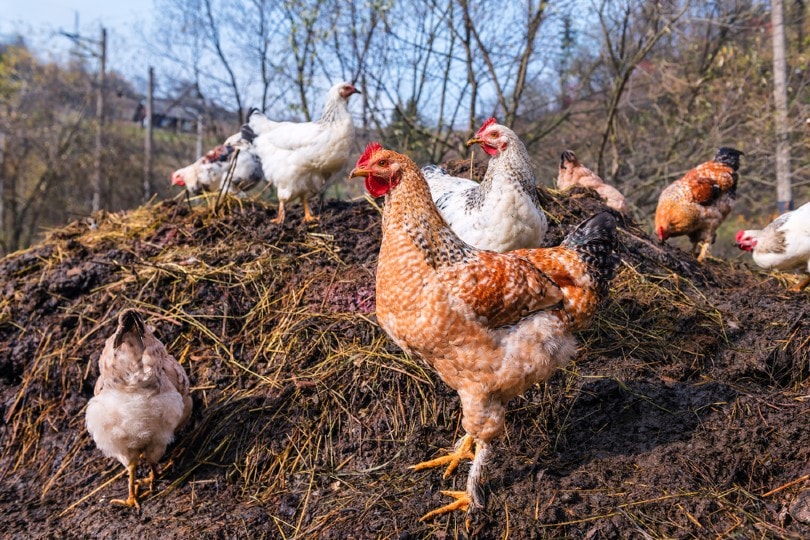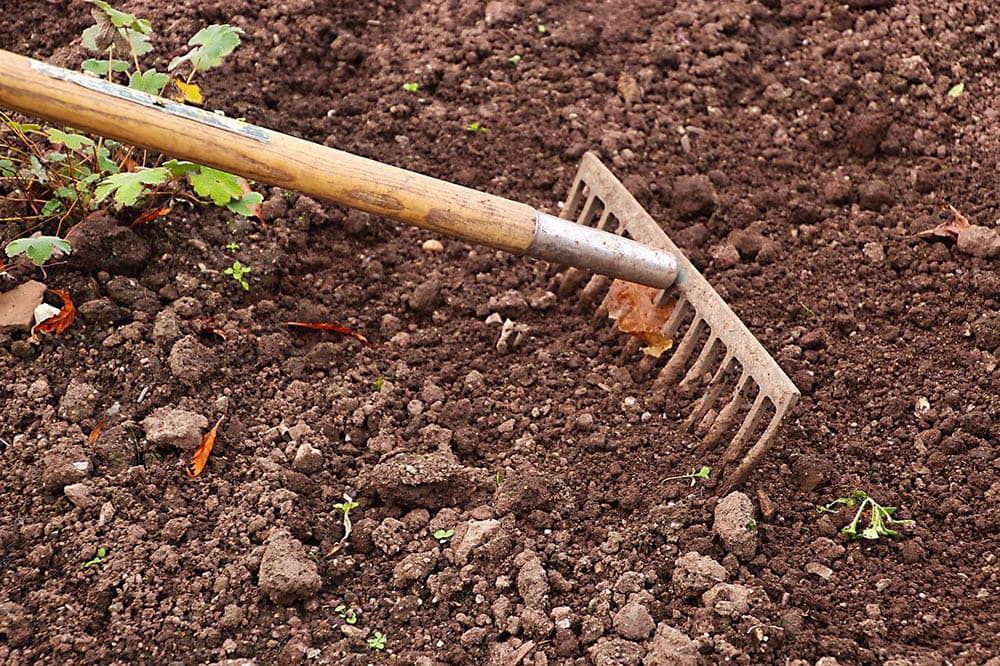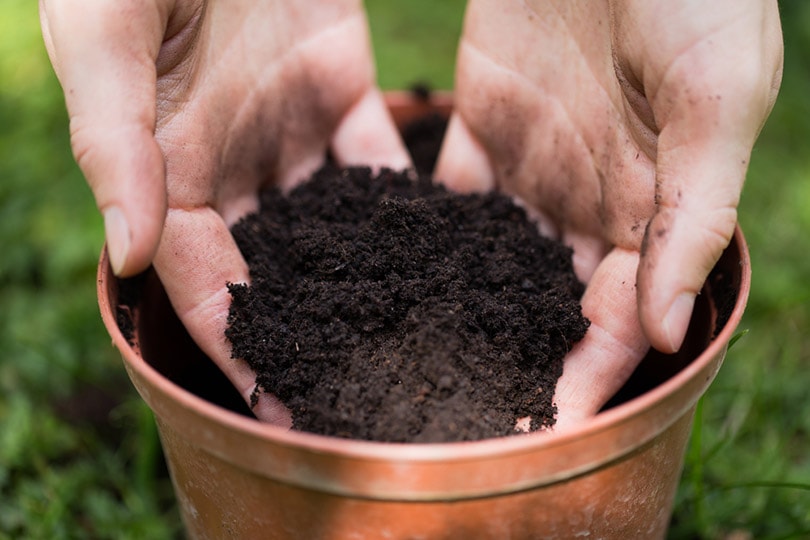Should I Add Chicken Manure to My Soil? Pros, Cons, & FAQ
-
Pete Ortiz
- Last updated:

Chickens have some of the best manure among domesticated animals and a mature layer will produce up to 130 pounds of manure per annum.
Combined with their docile nature, you have every reason to rear hens for manure. But before venturing into this clucky business, you need to know a few things. Read on below to find out whether you should add chicken manure to your soil.
Is Chicken Manure Good for the Soil?
Yes, applying the recommended dosage of 45 pounds of manure per 100 square feet, or 20% of the potting mixture, is good for the soil.
Organic matter breaks down through a chemical process initiated and controlled by aerobic bacteria. Each pile has billions of aerobic bacteria actively consuming oxygen and plant and animal matter to release nutrients, carbon dioxide, and heat. The last two are essential in killing harmful pathogens.
Carbon dioxide creates an acidic environment in which other pathogens won’t survive while heat stops multiplication.
It Is a Complete Source of Macro and Micronutrients

Chicken manure contains both macronutrients and micronutrients that are essential for plant growth. The macronutrients available are nitrogen, phosphorus, and potassium. Nitrogen is essential in plants for leaf growth and maintaining its lush green color. Phosphorus facilitates the growth of roots in plants. Potassium improves the strength and growth of plant stems.
The micronutrients that are present in chicken manure are mainly calcium and magnesium. Calcium facilitates the absorption of other nutrients. Magnesium neutralizes organic acids that are produced during cell metabolism.
It Is a Soil Amendment
A soil amendment is anything that can be used to improve the physical properties of soil, like water retention. Chicken manure contains organic matter that improves the soil structure. Organic matter holds onto moisture in the soil and improves aeration. The decomposition of organic matter by soil microbes releases carbon dioxide gas used by plants to make food.
Chicken manure also reduces soil erosion and fertilizer leaching. The organic matter in chicken manure attracts bacteria that strengthen the soil structure, thereby reducing attrition.
Finally, organic matter feeds soil microbes that, in turn, help in breaking down nutrients that are essential for plant life.
Can I Apply Fresh Chicken Droppings to the Soil?
Yes, it is possible to apply chicken droppings directly into the soil. But you should wait for at least 30 days for decomposition to take place. Fresh droppings have high nitrogen, and planting on them directly will burn plants. Additionally, the excess heat produced may harm roots.
After aging, manure can be mixed directly into the soil or made into manure tea and then irrigated on plants.
Laying Manure

This is the easiest way of availing nutrients from the chicken poop to plants. Simply scoop the manure into a wheelbarrow or big container and spread an inch-thick blanket over tilled land using a rake. Till again, to a depth of 8 inches to mix the manure and the soil.
For potting mixtures, mix approximately 20% of poultry manure with the soil before planting. For instance, if you have 10 pounds of soil, add 2 pounds of manure into the soil.
Manure Tea
Manure tea is a rich concoction extracted from organic matter.
Shovel manure into a large gunny bag made from sisal half full and place it into a 100-gallon container. Weigh it down with two bricks and fill the container with water in a ratio of 2:3 (manure to water). A 100-pound load will require almost 25 gallons of water. However, this will depend on the condition of the manure. Dry manure will need more water than wet.
After that, leave the manure in the container for a day or two to leach out nutrients.
On the third day, simply lift the bag out of the water and hang it above the water line to allow all liquid goodness to flow back.
Manure tea is good for leafy plants but use it sparingly on root crops such as carrots and potatoes. It has high nitrogen content, which supports vibrant leafy growth but not roots (they need potassium).
How Long Does Poultry Manure Last in the Soil?
On average, chicken manure lasts in the soil for a year. Unfortunately, the high temperatures released during composting and leaching reduces the availability of nutrients. So, before you introduce a new crop within a year, boost the nutrient content with 10 pounds of manure per 100 square feet.
Are There Disadvantages to Using Chicken Manure?
Chicken Manure Makes the Soil Acidic
The high nitrogen content in chicken manure acidifies the soil. This will affect most common garden plants and microbial activities in the soil, favoring only plants like blueberries.
Manure Contaminates Food Crops
Manure is a breeding zone for harmful bacteria and parasites. These organisms may be passed directly to humans if you use manure on food crops. Avoid contamination by using manure at least 2 months before harvesting the crop or thoroughly washing low-lying veggies and fruits before eating.
Conclusion
Poultry manure fortifies soil with nitrogen, phosphorus, potassium, and a wide array of micronutrients. Plants enjoy these natural nourishments and develop vibrantly. To get started, apply around 40 pounds of manure per 100 square feet of land. You can do this through direct laying or concocting manure tea.
Lastly, you should note that using fresh droppings will burn plants; likewise, never over-apply chicken manure. The high nitrogen content will acidify the soil.
Featured Image Credit: Vova Shevchuk, Shutterstock
Contents


